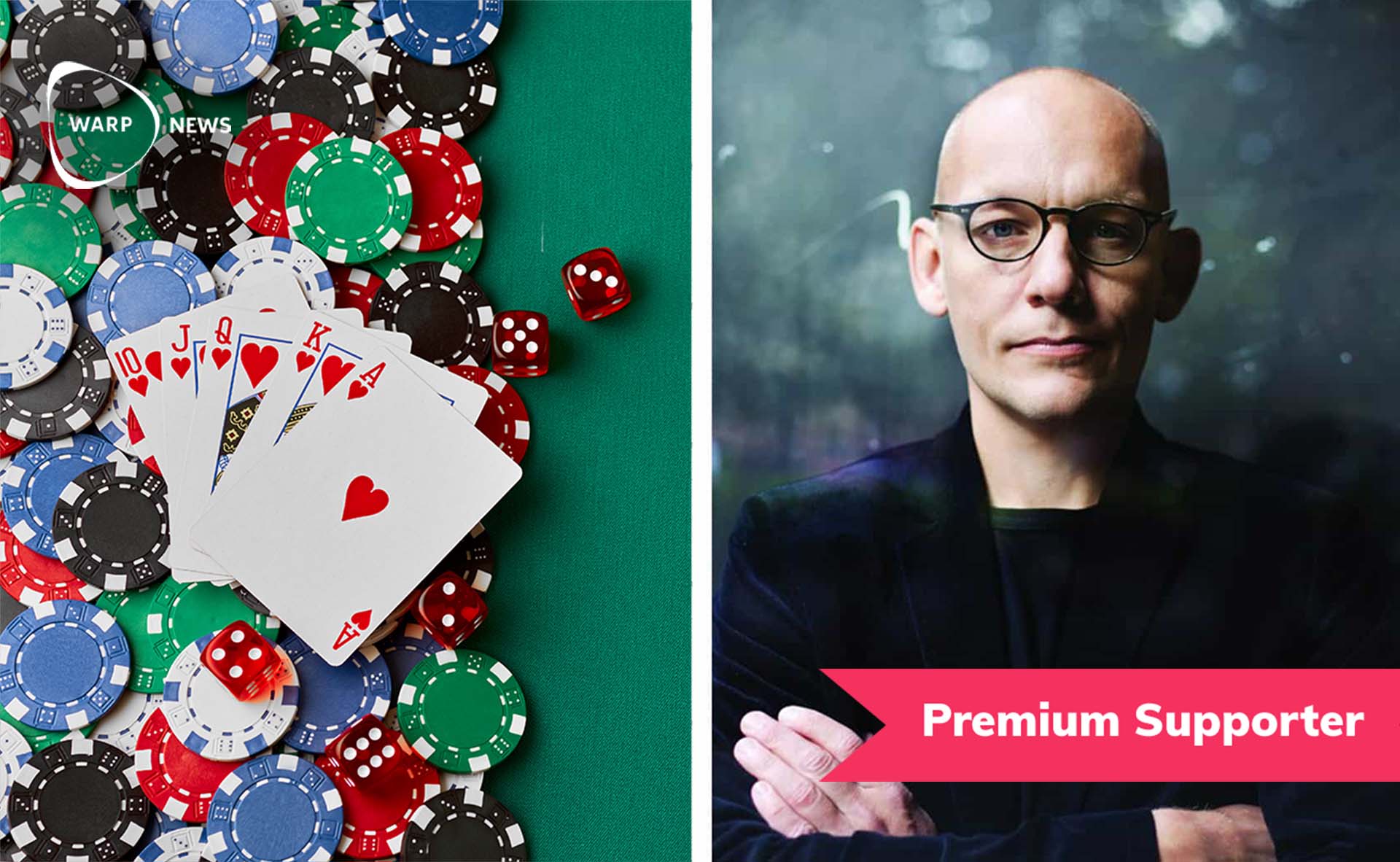
🎲 The games optimists play
How do you play? Optimists and pessimists play different games, and they play in different ways, writes Nicklas Berild Lundblad.
Share this story!
Life is – we often note – much like a game. The game is, in fact, one of the most interesting generative metaphors we have: it allows us to think constructively about complex and important problems – but it also allows us to think about the kinds of games we play.
Optimists and pessimists play different games, and they play in different ways.
In strategy optimists play the Chinese game go, and pessimists play chess. In chess everyone has their assigned value, and hierarchy runs deep. Some pieces are more important than others, and the only hint of social mobility you will find is the pawn getting promoted – but even that is a remote possibility in most games.
In chess you win by creating traps and stratagems that are focused on your enemy, on harming them. In the Chinese game go you build strategic structures and patterns that breathe, and can be sustained – you focus on finding ways to connect your patterns and to counteract other patterns, but at the end of the game every player has territory and the games are often closed by agreement.
Go is a game that is constructive, pattern focused and leaves some space for your opponent now, make no mistake – you can still win and there is still tension and intense competition, but the value of single pieces depend on the structure they are a part of and the role they play in their context. This is sometimes taken to mean that go is less individualistic than chess, and there is some truth to that, but it also means that go is more egalitarian than chess showing us a trade off between individualism, context, collective and egalitarianism that lies at the heart of a lot of social dilemmas.
Optimists play poker, and pessimists don't. Where the pessimist notes that there is only a small probability that you will win, and that you can do everything right and still end up with a losing hand by chance – optimists note the same thing and take that as a reason to engage in the game.
Randomness deters the pessimist, who wishes more than anything for certainty in a shrinking world – the optimist welcomes chance into the game because it creates possibility on top of the mechanics of probability – and that possibility is what creates real change in the long run.
It is true that optimists – and entrepreneurs – see probability in a different way than most pessimists, but not in the way that they overestimate or misestimate probabilities as much in as they realize that there is indeed worlds in which the improbable happens – and the optimists bet here is that we are less good at calculating those probabilities than we think.
The optimist welcomes chance – and by proxy – uncertainty into the game, because it opens the game up.
Optimists play games, pessimists play a game. Optimists range over a number of different games, relishing their mental models and their images of the world, exploring everything from complex computer games with intricate technology capability trees (yes, optimists play computer games!) to board games that invent new takes on trade, strategy and abstract problem solving.
Pessimists stick to a single game, a single mental model, in which they look for the way to build expertise that will allow them lose less often. The pessimist believes that the time it takes to play a new game is better invested in playing the game they already know – since they think the purpose of playing games is mastering them.
But games are like musical pieces – you discover the music behind the pieces as you play a lot of them and then you can improvise, and in the exact same way you discover the game behind the games only if you play a lot of them. Learning a game is not a waste of time, but the key to another way to see the world.
Optimists play infinite games, pessimists play finite games. The distinction between finite and infinite games was originally made by James P Carse, who summed up the difference as a simple one: in an infinite game you play to keep the game going, in the finite game you play to win and end the game.
Optimists play weaves of games that connect and build into a larger, infinite game that, on closer observation, looks a lot like life. They can see the value in taking games seriously.
And, finally, optimists see that these interconnected games create meaning in our lives, whereas the pessimist views games as mere distraction. But games are much more than distraction – they are limitations that open up for self-constructed meaning.
Games are, in fact, the only device that is left to us to create deeper meaning in life as religion has faded away – and in the long term games will emerge as something deeply human and important to our civilization. We are homo ludens – the playing man – to a much greater degree than we are homo sapiens.
A life well lived, games well played – the difference is not as great as you may think.
Optimism is making the first move, learning from each game and allowing play to create meaning in life. Pessimism is hesitating to play, look for quick wins and deny that there is any such thing as meaning in either life or games.
Your move.
By becoming a premium supporter, you help in the creation and sharing of fact-based optimistic news all over the world.


